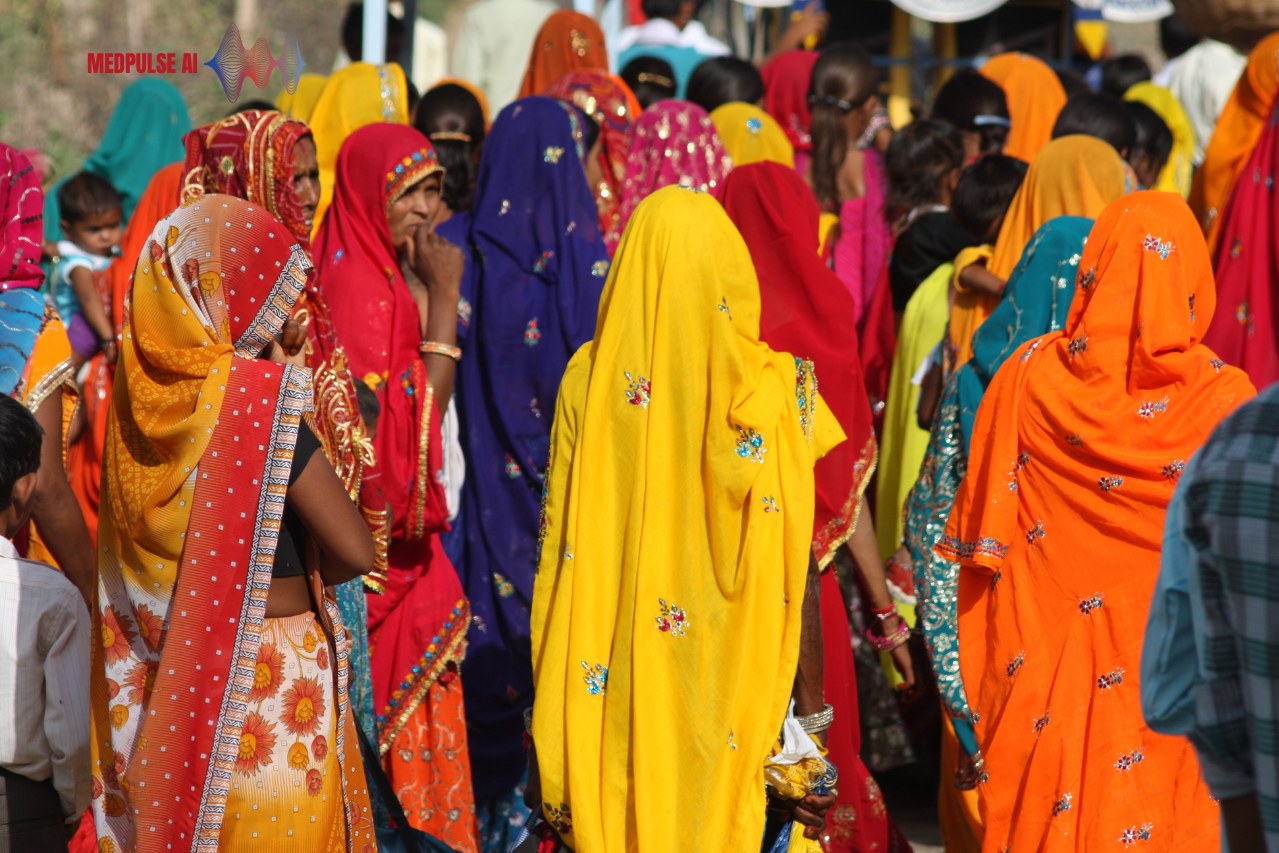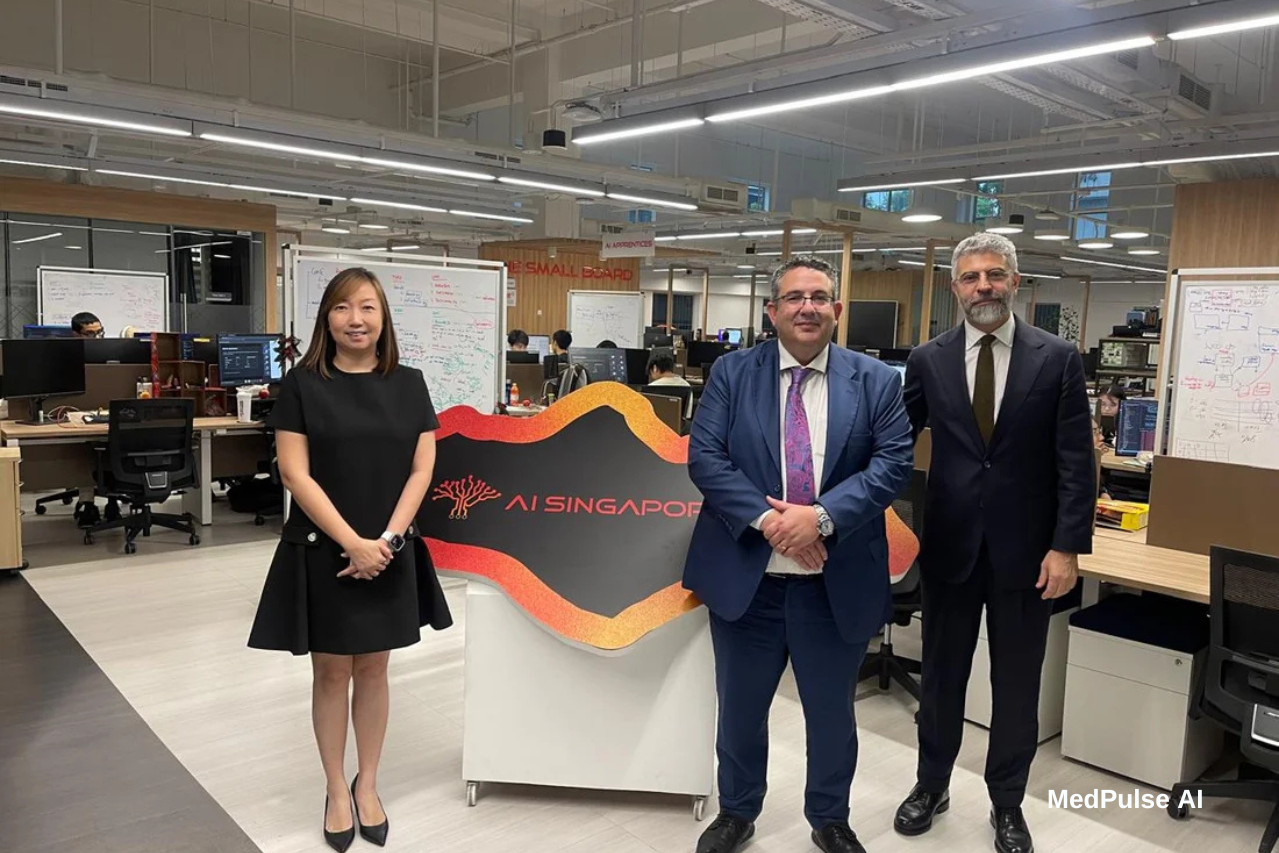India’s healthcare system is undergoing a digital transformation, driven by artificial intelligence (AI) and related technologies. At the forefront of this shift is Karnataka, where the 9th edition of CAHOTECH 2024 showcased how AI and digital health can solve critical healthcare challenges across the country. Karnataka’s Health & Family Welfare Minister, Dinesh Gundu Rao, set the stage with a forward-thinking vision, emphasizing that partnerships between technology developers and healthcare providers are essential for scaling effective healthcare solutions in urban and rural areas alike.
The Potential of AI in Healthcare: Karnataka’s Initiatives
During his keynote address at CAHOTECH, Minister Rao highlighted various ways Karnataka is using AI to improve healthcare delivery. One significant program, the Puneeth Rajkumar health initiative, has equipped 74 hospitals statewide with AI-powered ECG devices to facilitate rapid diagnosis of critical heart conditions, like STEMI, which can be fatal if not addressed quickly.
These devices allow frontline healthcare workers to detect and respond to heart conditions in mere minutes, a critical time-saver in emergencies. According to recent reports, the initiative has already saved over 245 lives by enabling swift, life-saving interventions across rural and remote regions.
The program is part of a larger trend in Karnataka to leverage AI for early disease detection. AI tools are also being applied in public hospitals to interpret digital X-rays to detect tuberculosis (TB) and lung cancer, contributing to India’s broader goal of combating infectious diseases and improving access to preventive care. Minister Rao pointed out that TB diagnosis, in particular, has seen significant advances with AI screening tools, enabling faster and more accurate diagnoses that are especially critical in rural areas with limited healthcare resources.
AI in Tuberculosis Detection
India has the highest burden of TB globally, with over 2.6 million cases reported annually, making rapid and accessible diagnostic methods crucial. Traditional TB diagnostics involve lab-intensive and time-consuming processes, often requiring specialized equipment and healthcare professionals, which may not be readily available in remote regions. AI tools are changing this scenario by automating the interpretation of chest X-rays, identifying potential TB cases with high accuracy and within seconds.
Solutions like those developed by Qure.ai demonstrate the practical potential of AI in TB screening. The technology is reportedly capable of detecting 15.8% more TB cases than traditional methods, an important factor in rural areas where immediate access to radiologists is scarce. AI’s ability to analyze X-rays almost instantaneously, coupled with portable X-ray devices, enables the technology to operate even in areas without consistent electricity or internet access, making it a game-changer for TB detection in remote communities.
NTT Data and DeepTek: Expanding AI-Driven Healthcare Access
NTT Data, a Japanese IT services provider, and DeepTek, an Indian health-tech startup, have partnered to bring AI-powered diagnostic solutions to underserved populations across India. This collaboration leverages NTT Data’s expertise in cloud computing and AI technologies through the Microsoft AI for Health initiative, with the goal of enhancing diagnostic capabilities for TB and other infectious diseases.
In Chennai, for example, NTT Data and DeepTek are using mobile diagnostic units equipped with AI technology to screen 100,000 people for TB. These units bring high-quality diagnostics to populations in remote and rural areas, reducing the burden on local hospitals and providing timely care where it’s needed most.
This project highlights the scalability of AI-driven healthcare solutions. By integrating portable X-ray devices with AI software, NTT Data, and DeepTek are creating diagnostic solutions that can run offline on standard laptops, allowing healthcare providers to operate even in challenging environments. This adaptability makes AI a feasible option for other regions in India, where access to healthcare infrastructure remains limited.
Broader Implications for India’s Healthcare System
The initiatives presented at CAHOTECH 2024 highlight the broader implications of AI for India’s healthcare system. Minister Rao emphasized that while private hospitals often lead in adopting advanced technology, the greatest potential impact of AI lies in the public healthcare sector, where it can bridge gaps in access to care. AI’s scalability means it can be applied across a range of settings, from urban hospitals to rural clinics, ensuring that healthcare resources reach those who need them most.
AI is already demonstrating its effectiveness in improving diagnostics for a range of diseases beyond TB. For example, AI tools are being developed to support diagnostics in oncology, cardiovascular health, and even ophthalmology, where deep learning algorithms are being used to detect eye diseases like diabetic retinopathy in early stages, helping to prevent vision loss.
As Minister Rao stressed, India’s diverse population and healthcare challenges demand innovative solutions, and AI stands out as a tool with the flexibility and potential to address these needs.
Challenges and Opportunities in Scaling AI Solutions
Despite the promising advancements, integrating AI in healthcare comes with challenges. Ensuring data accuracy, maintaining patient privacy, and addressing technical limitations are all areas that need careful consideration. AI algorithms require vast datasets for training, which can be difficult to obtain, especially in rural areas where healthcare data may be fragmented or incomplete. There are also ethical concerns related to data privacy and the need for informed consent, which must be addressed to build trust in AI solutions among patients and healthcare providers.
In terms of operational challenges, integrating AI into clinical workflows demands collaboration and training among healthcare workers. Minister Rao encouraged continuous learning and collaboration through forums like CAHOTECH, where healthcare and technology experts can exchange knowledge and work together to overcome these challenges.
He also invited startups and technology companies to partner with the government in developing AI tools that cater specifically to India’s healthcare needs, emphasizing that scalable solutions can significantly reduce operational costs and enhance healthcare efficiency.
Future of AI in Indian Healthcare
Looking ahead, AI’s role in Indian healthcare is set to expand, driven by government initiatives and public-private partnerships like those seen with NTT Data and DeepTek. The Karnataka government’s commitment to fostering innovation in AI, particularly in public health, positions the state as a leader in healthcare technology.
By continuing to invest in AI-driven diagnostics, mobile health solutions, and collaborative platforms, India can make strides toward achieving its healthcare goals, including the ambitious target of eliminating TB by 2025.
India’s success with AI in healthcare could serve as a model for other countries facing similar challenges. As AI technology becomes more accessible and affordable, the potential for its application in resource-constrained environments will grow, paving the way for more equitable healthcare systems worldwide. The advancements in AI showcased at CAHOTECH 2024 demonstrate that, while challenges remain, the opportunity to transform healthcare through technology has never been more within reach.
A Transformative Path Forward
The AI initiatives discussed at CAHOTECH 2024 illustrate how digital health technologies can address pressing healthcare issues in India. From diagnosing heart conditions in rural clinics to detecting TB in remote communities, AI is reshaping the healthcare landscape with innovative, life-saving tools. Minister Rao’s call for collaboration reflects a strategic approach to healthcare that balances technological innovation with accessibility, ensuring that advancements reach India’s most underserved populations.
In the coming years, as AI technology continues to evolve and expand, India’s healthcare system is poised for further transformation. Through collaborative efforts and continued investment in AI solutions, India can lead the way in creating a healthcare model that is not only technologically advanced but also accessible, affordable, and inclusive.
Are you interested in how AI is changing healthcare? Subscribe to our newsletter, “PulsePoint,” for updates, insights, and trends on AI innovations in healthcare.




